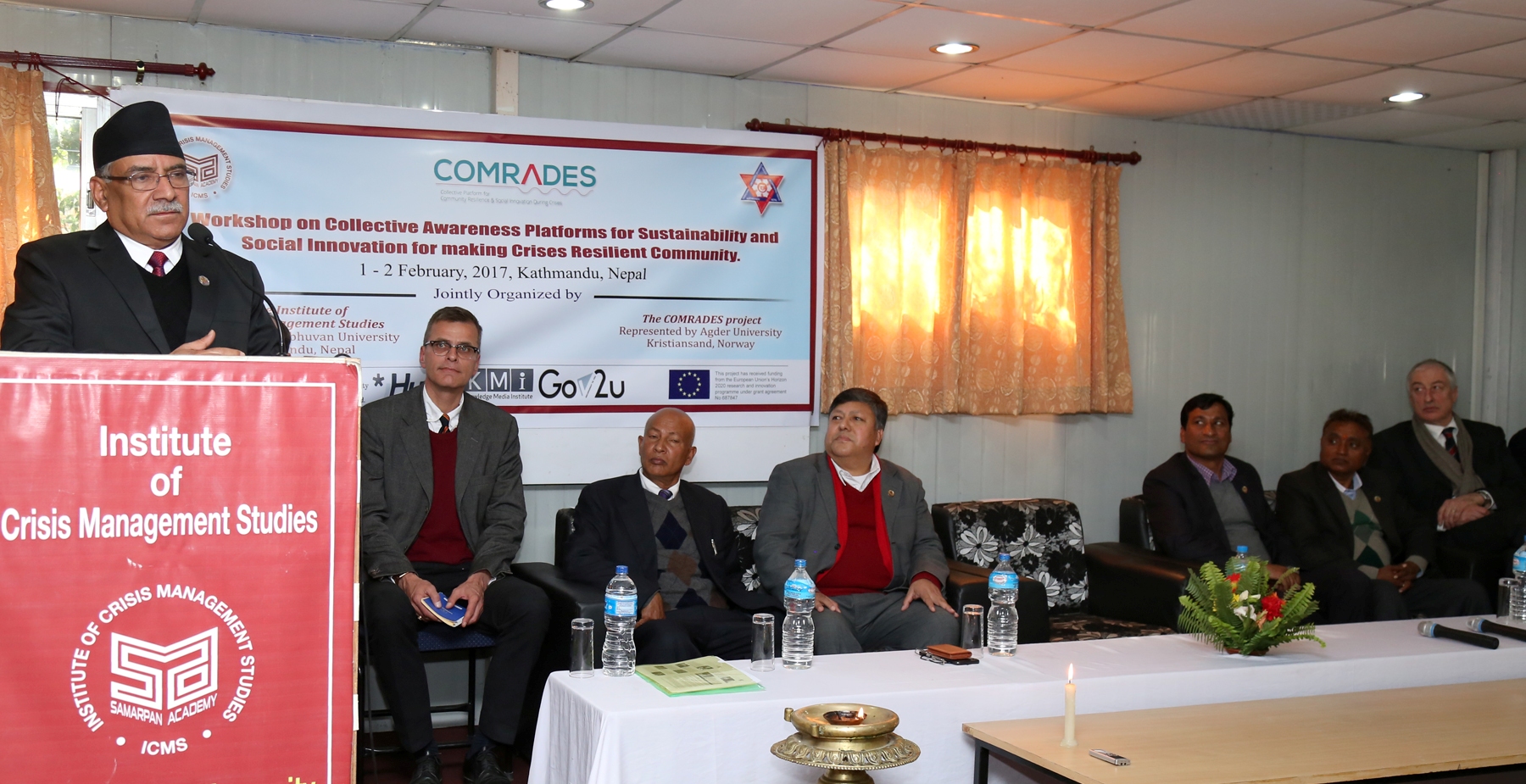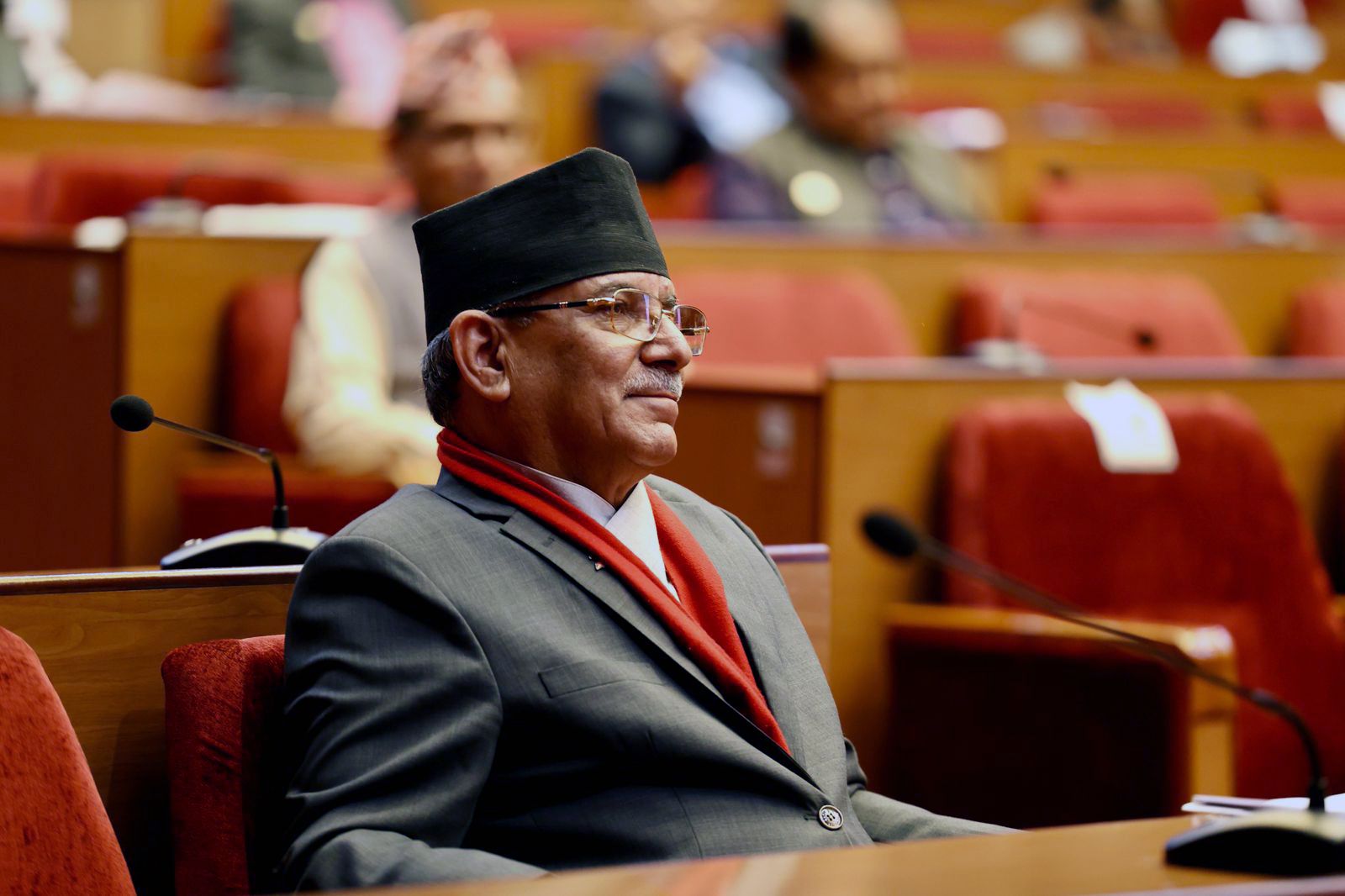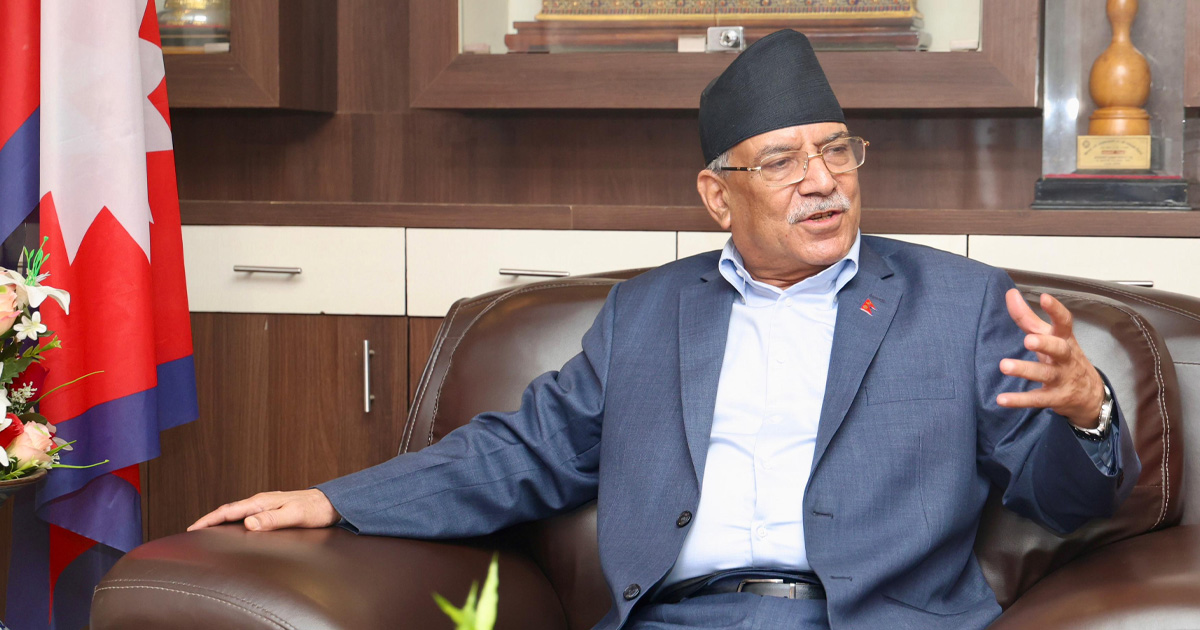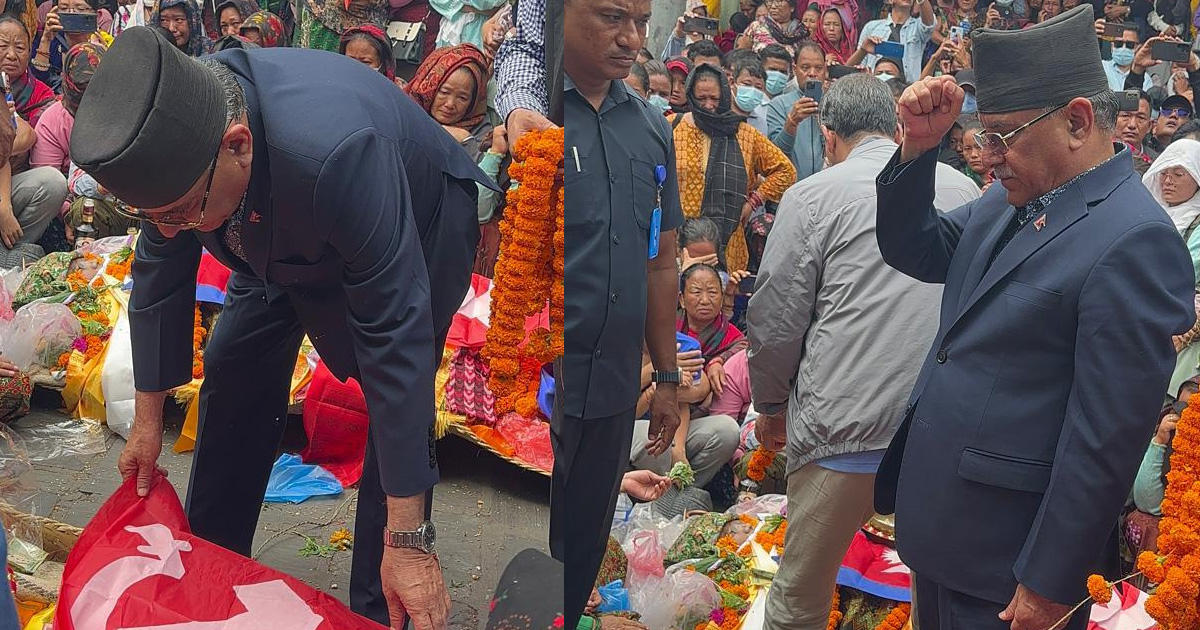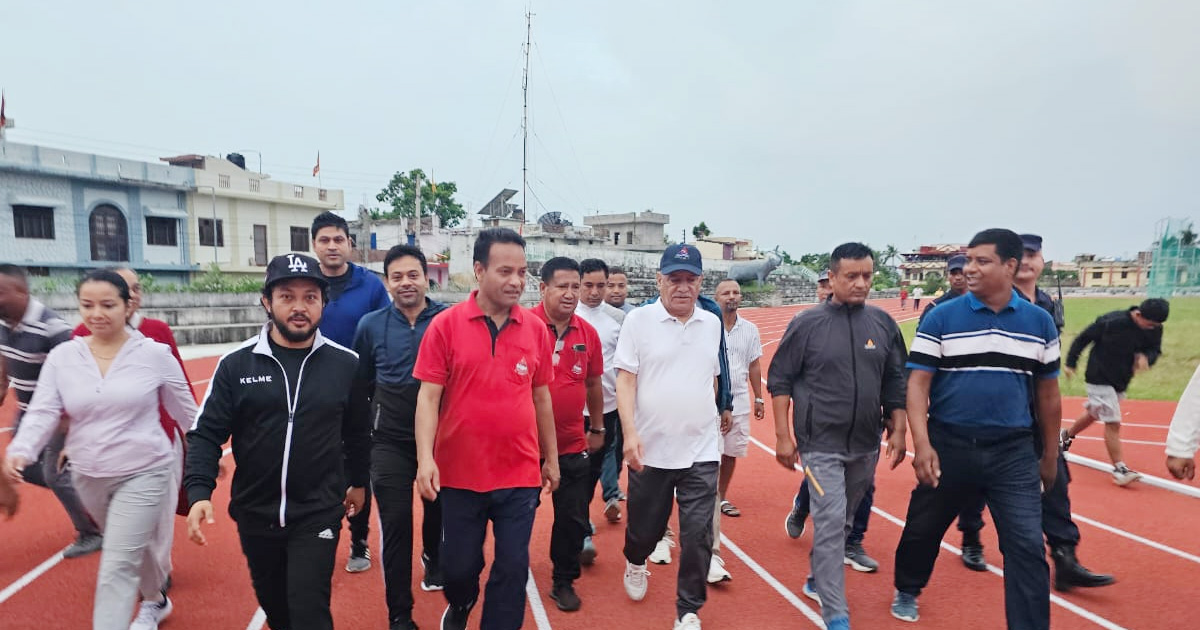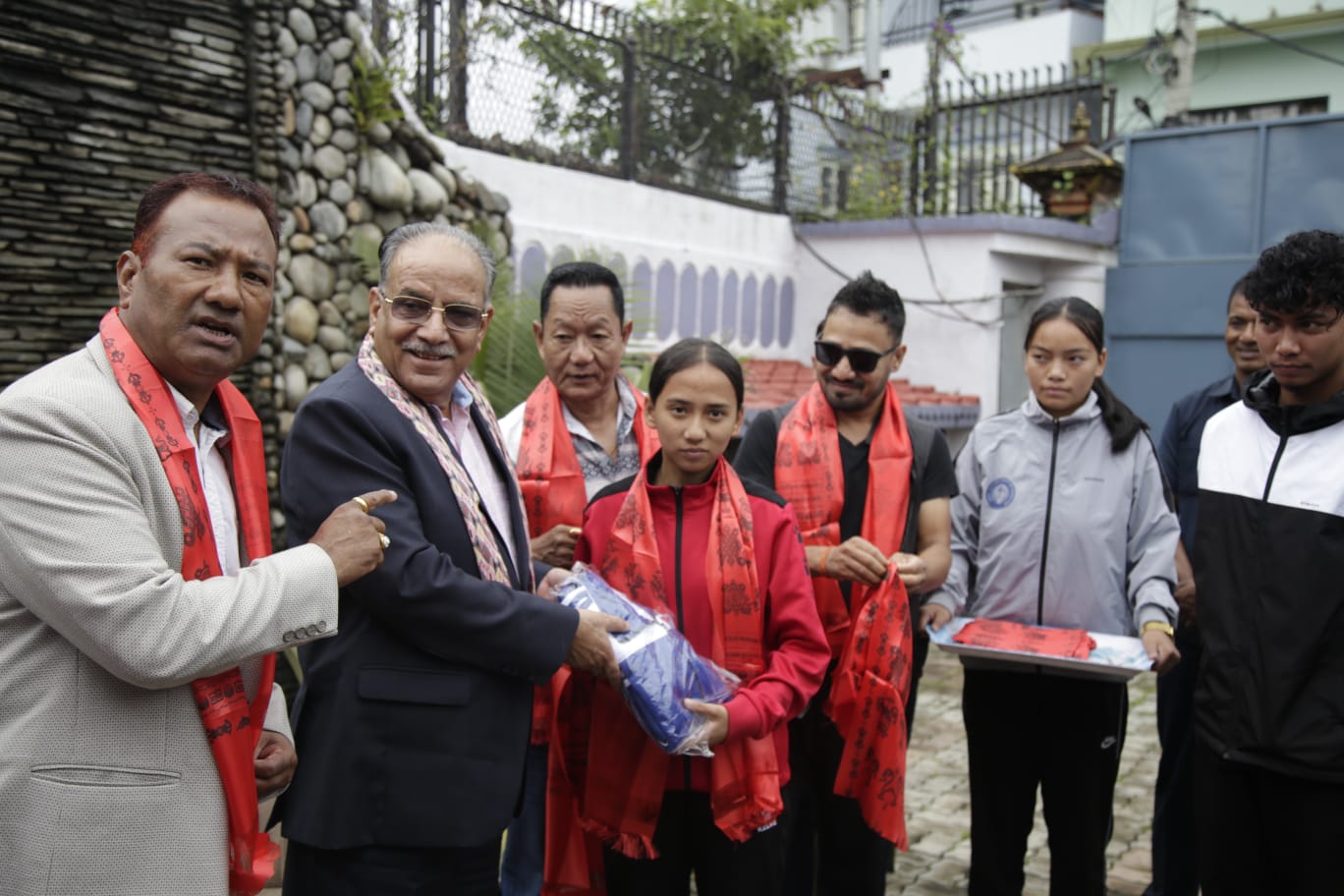Chair of the workshop
Delegates and participants,
Friends from the media
Ladies and gentlemen,
I feel happy to be among you. I consider the contents of the workshop are important for us.
It is important for us because owing to the unique geography and fragility of mountain ecosystem, Nepal has remained a disaster-prone country.
A combination of disaster related risks, such as earthquake, flash floods, landslides, forest fire and melting and outburst of glacial lakes have increased our vulnerability and endangered lives and livelihoods of our people.
Climate change and its multi-dimensional impact has further compounded the risks and vulnerability of our people.
The devastating earthquake of April 2015 is a stern reminder which is still fresh in our mind.
Through resilience and collective action on the part of the government, people, community, civil society and non-governmental partners, we were able to respond to the immediate rescue and relief needs and later to embark on the path of reconstruction for ‘building-back-better’.
The role and support of international community, both government and non-government, remained critical in all those efforts.
Learning from the past mistakes as well as from the experiences of other countries, we have made sincere efforts both in the post-earth quake reconstruction and building communities resilient to the potential future risks.
It is in this context I consider this workshop a useful and important platform to raise collective awareness and share experiences and best practices for building resilient communities.
Ladies and gentlemen,
Vulnerability of human lives is palpable in every major natural blow. However, calamities and disasters are not induced by the nature alone. We have seen and experienced around the world many calamities induced by unsustainable human actions.
With our collective efforts, human-induced disasters can be prevented. We can also reduce the impact of the natural disasters and make people better prepared to cope with the unforeseen eventualities.
Every major disaster adds miseries and sufferings to the lives, properties, and livelihood of the people. However, every major disaster teaches invaluable lesson of how to survive such crises and helps innovate ways and means to be resilient. This probably is the secret of survival of human civilization. After every major calamities, human societies have emerged better prepared and more resilient.
This is where comes in the importance of social innovation for making communities more aware, resilient and better prepared. Because natural disasters are unpredictable and they know no borders. They are indiscriminate and can strike anywhere. Preparedness alone can reduce the vulnerability and prevent loss of lives and properties.
Information is critically important in disasters that can save lives. Technology can support us for making informed decision based on science and research rather than intuition. Given the specificity of Nepal and our typical geography, we need to remain prepared for a variety of disasters, instill awareness among the people, and utilize tools of preparedness, such as early warning system, emergency response and relief, and arrangements of critical logistics.
In our own experience, geologists and experts had vaguely warned us about the possibility of major disaster in the Himalayan region. Yet the earthquake of 2015 struck us when we were not fully prepared. Adequate preventive measures could have minimized the death toll and prevented damage and destruction.
However, the Government of Nepal was quick to respond, within hours, utilizing its available resources and institutions.
As we are geared to the post-earthquake reconstruction and rebuilding, the National Reconstruction Authority is undertaking its mandated responsibilities in full swing with all requisite institutional and resource backing. The Government has decided to provide three hundred thousand rupees per household of the earthquake affected victims. Distribution of the second tranche of this support has already begun.
We are serious to learn from the past, preserve institutional memory and utilize that memory for the benefit of the posterity.
With a longer term vision of disaster risk reduction and preparedness in mind, the Government of Nepal is fully committed to the Sendai Framework for Disaster Risk Reduction and its four priorities and seven targets. We want to build institutions, strengthen the existing ones, and streamline the legal and institutional frameworks for building resilience and preparedness as envisioned by the Sendai Framework.
We are fully aware that sustained local, national, regional and international efforts with adequate resource backing are essential to realize those international commitment as outlined in the Sendai framework.
To conclude, I am confident that your deliberations in this program would come up with useful sharing of experience that can be emulated in the actual practice.
I wish for the success of the program.
I thank you all.
1-2 February 2017, Kathmandu, Nepal
 क. प्रचण्ड
क. प्रचण्ड
